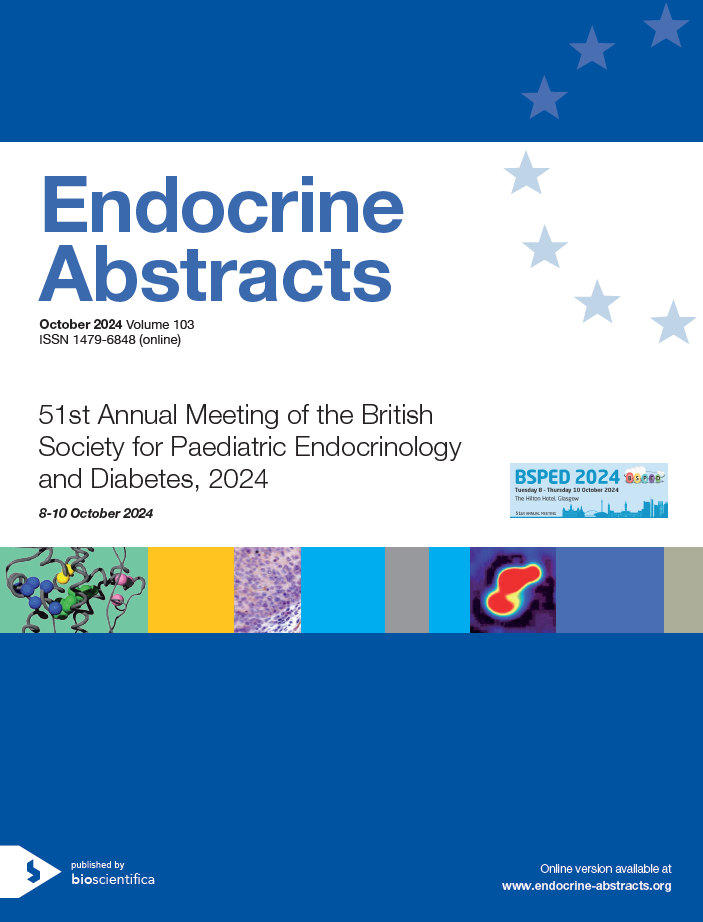
51st Annual Meeting of the British Society for Paediatric Endocrinology and Diabetes
Glasgow,
UK
08 Oct 2024 - 10 Oct 2024

Oral Communications
Diabetes Oral Communications 1
ea0103oc7.1 | Diabetes Oral Communications 1 | BSPED2024
Does severity of DKA presentation associate with autoantibody status, deprivation or ethnicity - a two-centre retrospective cohort
Balagamage Chamila , Andrews Afiya , Kershaw Melanie , Mohamed Zainaba , Idkowiak Jan , Uday Suma , Saraff Vrinda , Drummond Lesley , Krone Ruth , Willemsen Ruben H. , Dias Renuka P.
ea0103oc7.2 | Diabetes Oral Communications 1 | BSPED2024
A regional audit of diabetic ketoacidosis (DKA) presentations at diagnosis of type 1 diabetes (T1DM) and DKA management
Pieridou Chariklia , Hield Corinne , Morath Lauren , Karthikeyan Ambika , Clark Heather
ea0103oc7.3 | Diabetes Oral Communications 1 | BSPED2024
Glycaemic control of children and young people with type 1 diabetes fasting during ramadan at a single london paediatric diabetes unit
Blackstock Sarah , Logan Karen , Bound Christopher , Vieira Soraia , Mengistu Zelalem , Wassouf Samir , Ghosh Sudeshna
ea0103oc7.4 | Diabetes Oral Communications 1 | BSPED2024
Short term outcomes for children with new onset diabetes and confirmed SARS-CoV-2 Infections – a case series
Ponmani Caroline , Nijman Ruud , Roland Damian , Hulse Tony
ea0103oc7.5 | Diabetes Oral Communications 1 | BSPED2024
Comparison of glycaemic control across different ethnic and socioeconomic groups in a cohort of children using hybrid closed loop systems
Pemberton John , Collins Louise , Drummond Lesley , Dias Renuka P. , Krone Ruth , Kershaw Melanie , Uday Suma



